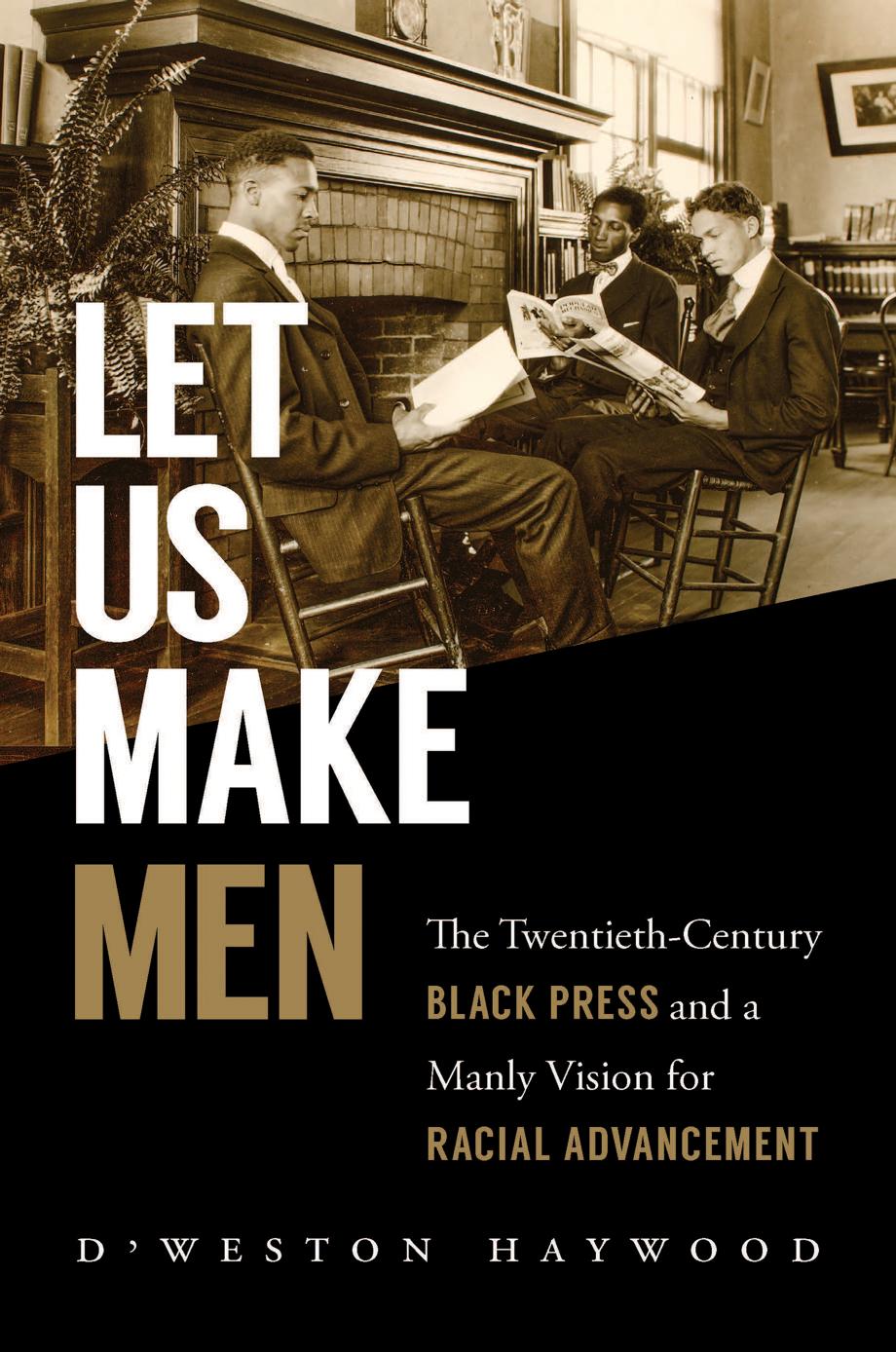Let Us Make Men: The Twentieth-Century Black Press and a Manly Vision for Racial Advancement by D'Weston Haywood

Author:D'Weston Haywood
Language: eng
Format: epub, pdf
Tags: History, United States, 20th Century, Language Arts & Disciplines, Journalism, Social Science, Ethnic Studies, African American Studies
Publisher: University of North Carolina Press
Published: 2018-01-15T00:56:44.995000+00:00
5 Walk the Way of Free Men
Malcolm X, Displaying the Original Man, and Troubling the Black Press as the Voice of the Race
Brother Frank 8X Lopez sold Muhammad Speaks on the streets of New York. The paper was the official news organ of the Nation of Islam (NOI), a faith-based black separatist organization led by Elijah Muhammad. Lopez was a member, as well as one of its leading salesmen for the paper.1 Muhammad Speaks was one of the “organizational publications” that convinced Robert F. Williams that a greater black militancy was on the horizon for the black press and freedom struggle. In fact, he called it one of the “most vocal” black papers of its day.2 Williams had confidence in Muhammad Speaks for good reason: he was friends with its founder, Malcolm X. The two met in 1958 and came to share a commitment to black self-defense, the redemption of black manhood, and eventually print and practice.3 And Malcolm was as unlikely a newspaperman as Williams was, if not more. Born Malcolm Little in Omaha, Nebraska, in 1925, his father was an outspoken Baptist preacher and Garveyite, who was thought to have been killed by white vigilantes when Malcolm was six years old. Malcolm’s mother struggled to hold their family together after his death and was later committed to a mental institution. Malcolm, their seventh child, was sent to foster care for a time. He fell into a life of crime by his midteens and was incarcerated for larceny and breaking and entering at twenty-one years old. He converted to the NOI in prison, and, paroled in 1952, he quickly became one of Muhammad’s leading ministers. By the late 1950s, he was Muhammad’s national spokesman.4 In terms of black people’s freedom struggles, Williams had pushed for complete integration. Malcolm instead promoted Muhammad’s vision for racial advancement, a message previously widely unknown until it was brought to the attention of the mass public on July 10, 1959, with the airing of “The Hate That Hate Produced.” This televised documentary introduced Malcolm, Muhammad, men like Lopez, and the NOI to America.5 The documentary ignited a firestorm of controversy around the NOI, but prompted Malcolm to respond by founding Muhammad Speaks in May 1960. The paper served as the organization’s propaganda organ, while marking the beginning of a robust media campaign in which Malcolm and men like Lopez were crucial. Muhammad Speaks helped counter critics of the NOI, attract interest and followers, and promote Muhammad’s vision for racial advancement before an increasingly militant black public. That vision was predicated on “Separation or Death.”6 This pithy but heady declaration reflected Muhammad’s eschatological beliefs, Black Nationalism, and demand for a separate black state.7 And Muhammad, NOI leaders, and Muhammad Speaks directed this message especially at black men. “I’m after you the black man.… You are the man that is asleep,” Muhammad asserted in the paper. “The time is long past for the black man to start doing some serious thinking about what he must do to become wholly free.
Download
Let Us Make Men: The Twentieth-Century Black Press and a Manly Vision for Racial Advancement by D'Weston Haywood.pdf
This site does not store any files on its server. We only index and link to content provided by other sites. Please contact the content providers to delete copyright contents if any and email us, we'll remove relevant links or contents immediately.
| African-American Studies | Asian American Studies |
| Disabled | Ethnic Studies |
| Hispanic American Studies | LGBT |
| Minority Studies | Native American Studies |
Cecilia; Or, Memoirs of an Heiress — Volume 1 by Fanny Burney(32548)
Cecilia; Or, Memoirs of an Heiress — Volume 2 by Fanny Burney(31947)
Cecilia; Or, Memoirs of an Heiress — Volume 3 by Fanny Burney(31932)
The Great Music City by Andrea Baker(31917)
We're Going to Need More Wine by Gabrielle Union(19034)
All the Missing Girls by Megan Miranda(15960)
Pimp by Iceberg Slim(14488)
Bombshells: Glamour Girls of a Lifetime by Sullivan Steve(14058)
For the Love of Europe by Rick Steves(13932)
Talking to Strangers by Malcolm Gladwell(13350)
Norse Mythology by Gaiman Neil(13349)
Fifty Shades Freed by E L James(13233)
Mindhunter: Inside the FBI's Elite Serial Crime Unit by John E. Douglas & Mark Olshaker(9324)
Crazy Rich Asians by Kevin Kwan(9280)
The Lost Art of Listening by Michael P. Nichols(7494)
Enlightenment Now: The Case for Reason, Science, Humanism, and Progress by Steven Pinker(7306)
The Four Agreements by Don Miguel Ruiz(6745)
Bad Blood by John Carreyrou(6611)
Weapons of Math Destruction by Cathy O'Neil(6267)
